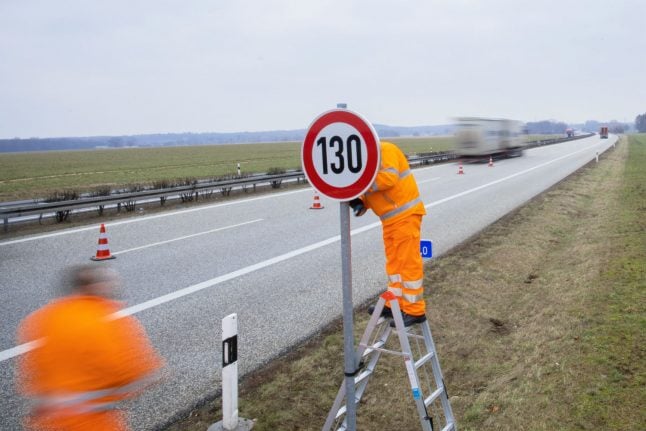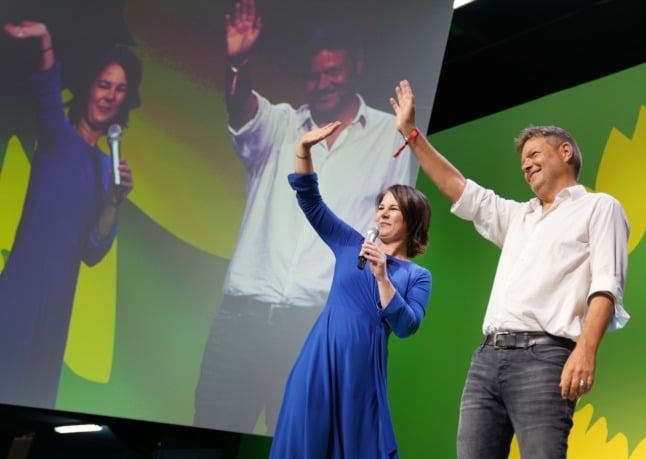Members of Germany's Parliament, the Bundestag, could take a vote on Thursday on whether to introduce a speed limit of 130 kilometres per hour on the Autobahn from January 2020.
In Germany, there has been a decades-long dispute asking if a general speed limit should be imposed on the country's world-famous Autobahn.
Some argue that putting a general speed limit in place, usually touted as 130km/h, would make roads safer and reduce carbon emissions.
However, for many people inside and outside Germany, the speed limit-free motorways are a strong part of the country's car-loving culture and history.
In a survey by The Local in May, Just over 70 percent of readers rejected the idea of imposing a general speed limit on the Autobahn network.
READ ALSO: How our readers feel about imposing a speed limit on Germany's Autobahn
As the Local reported, the Greens put forward a motion urging for a speed limit earlier this year.
“Anyone who wants to make motorways safer and traffic flow more smoothly must introduce a speed limit,” Green parliamentary party leader Anton Hofreiter told DPA.
The Greens have requested a roll-call vote on the motion in the Bundestag on Thursday.
“We call on the coalition to put aside its ideological blockade and vote in favour of our motion,” he added.
Hofreiter has previously said Germany “is the last government in Europe to ignore the logical arguments on the speed limit”.
Greens politician Sven Kindler tweeted a map of speed limits across Europe and said Germany had a chance to end its transport policy.
Heute hat der #Bundestag die große Chance in #Europa anzukommen und den deutschen Alleingang in der Verkehrspolitik zu beenden. #Tempolimit pic.twitter.com/rbM7CVu14U
— Sven Kindler ?? (@sven_kindler) October 17, 2019
READ ALSO: Eight things you never knew about the German Autobahn
However, the government, made up of a coalition with Chancellor Angela Merkel's Christian Democrats (CDU) and Christian Social Union (CSU) and the Social Democrats SPD ruled out an Autobahn speed limit earlier this year.
Transport Minister Andreas Scheuer previously said the idea of imposing limits “defies all common sense.”
Germany is the only country in Europe with no official speed limit on its motorways. However, about 30 percent of the Autobahn currently has a speed limit, according to Statista.
In Austria, Denmark, the Netherlands, France and the Czech Republic there is a 130km/h limit on the motorway network. Meanwhile, in Belgium and Switzerland, a 120km/h limit is in place.




 Please whitelist us to continue reading.
Please whitelist us to continue reading.
Member comments